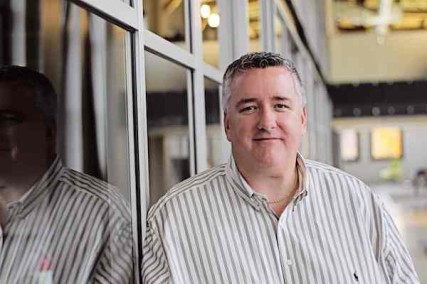
James Kashork is busy these days. The new executive director of Spokane’s ‘green-collar jobs’ nonprofit, Project Hope, often crams a full-time week’s worth of work into a part-time schedule. But being busy is old hat for the father of two and founder of two organizations — a tech startup called Conneqtive Inc. and Spokane Urban Ministries, which he helped form with several others. Also a retired Lutheran pastor, Kashork’s newest job merges his love of nonprofit organizations with his passion for working with youth and families.
Project Hope began in 2004 as the brainchild of several locals tired of seeing youth fall prey to gang violence, particularly in Spokane’s West Central neighborhood. Founders Patrick and Connie Malone and many others’ vision of creating a way out of poverty through environmentally-based jobs became a reality as the project grew over the next few years to include neighborhood farm plots, a lawn care business, a summer job training program for youth and leadership training programs for students. Produce grown in the farm plots, known collectively as Riverfront Farm, is tended and picked by program participants and sold at local farmers markets.
Approximately 35 to 50 youth ages 11 to 18 currently participate in the program, Kashork said, which is mostly funded by private foundations and individual donors. Each kid who works doing farming or lawn care receives a stipend for their labor, and Project Hope is popular in the area. Most referrals are by word of mouth, Kashork said, and they don’t usually have trouble recruiting for the various programs.
“Young people in the neighborhood have heard of it,” he said. “Most folks know of Project Hope and what they do.”
Kashork’s role within the organization is primarily administrative at this point, he said. He works mainly with grants and fund reporting, meeting with donors and working on donor retention.
“[Project Hope] needed infrastructure underneath what they’d already built,” he said. “The reality is we turn away kids every year because we can’t afford to pay them.”
Kashork was drawn to Project Hope because of its unique approach, he said. Rather than waiting for youth crises to appear, program organizers headed off the gang problem before it happened.
“Project Hope wasn’t a reactive enterprise,” he said.
The new director doesn’t believe Spokane’s proposed urban farming initiative will negatively affect Riverfront Farm or their operations. Their board supports it as a great start, Kashork said, but believes it could be even better.
“We want people to have access to good, healthy food and we believe this legislation provides this opportunity,” he said. “But we don’t think it goes far enough in dealing with some of the issues.”
For example, he cited the requirement to obtain a $55 business license as a possible barrier to some families trying to grow their own food on private land.





